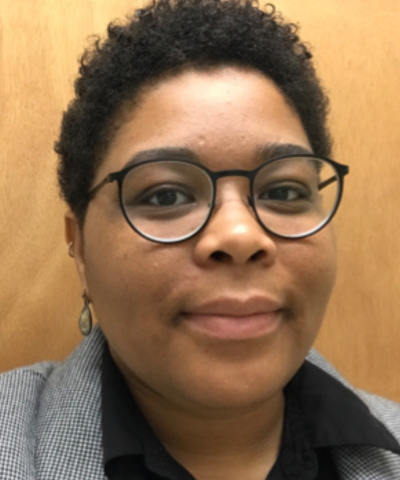
Introduction
Dr. Whitman-Jemison, Pharm.D., is a Clinical Associate Professor at Western New England University’s College of Pharmacy and Health Sciences, specializing in oncology, hematology, and health equity. She holds a Pharm.D. with a geriatrics concentration and has completed ASHP-accredited residencies in pharmacy practice and hematology-oncology. A Board-Certified Oncology Pharmacist, she is also credentialed in precision medicine and pharmacogenomics. Actively engaged in mentorship and community outreach, she serves on multiple boards and advocates for improved mental health crisis response. In her free time, she enjoys live music, documentaries, and volunteering. Read more about her work here.
Why Pharmacy
While I had an interest in healthcare early on, I wasn’t comfortable with blood, which limited my options. Pharmacy stood out as a unique way to make a meaningful difference without facing that barrier. My father’s encouragement and stories about his healthcare experiences introduced me to the field, and a career fair at a hospital solidified this path. This combination of influences inspired me to pursue pharmacy, particularly in oncology, where I knew, I could help push the boundaries of evidence-inspired practices, bringing innovative treatments to patients who need them most.
Career Journey
I chose oncology pharmacy largely because of my father and the journey we shared through his battle with cancer, which revealed to me the immense impact of clinical care. My father was diagnosed with stage IV lung cancer, and while this news was devastating, it became transformative for us both. He underwent experimental treatments, and I saw firsthand the life-saving difference that a skilled and compassionate hematology-oncology pharmacist made in his care. Instead of leaving my family after a few weeks as predicted, I have had the joy of spending the last 20 years with him, which is truly a gift. Through my father's perspective, I realized the power of pharmacy in oncology to redefine patient outcomes.
Current Role and Responsibilities
In my role, I teach lectures and precept APPE student in ambulatory hematology-oncology. A typical day involves direct patient counseling, answering drug information questions, reviewing potential drug interactions, supportive care consults and coordinating with the UMass Specialty Pharmacy and Hematology-Oncology providers.
Challenges
Oncology is a rapidly evolving field, and keeping up with the latest research and treatment options is a continuous challenge. Balancing the demands of clinical work with the need for constant learning can be overwhelming, as there is always more to know. Additionally, managing patient care within a system that sometimes limits access to necessary resources, like seeing patients struggle with financial toxicity, can be disheartening.
Rewards
The most rewarding part of my career is witnessing the direct impact of my work on patients’ lives. While some view oncology as a challenging or even depressing field, I find profound purpose in helping patients improve, even if temporarily, to give them time with their families. Every time I help a patient manage treatment side effects, optimize medication, or avoid a potential adverse reaction, I know I’m contributing to those precious moments. My father’s experience, surviving against the odds, reminds me that inspiring outcomes are possible.
I recently had a new patient who, when I went in to counsel him on his medication, told me he knew me! It turns out I had worked with his wife, who had recently passed from cancer. He shared how much they appreciated the check-in calls and efforts to keep her comfortable. He said he wouldn’t have gone anywhere else for care because of the incredible support from our entire oncology team. The doctors, nurses, admin, pharmacy, everyone here works together to make even the hardest situations more bearable. It’s moments like these that remind me why I love working here, knowing our patients truly feel the care and dedication we put into every interaction.
As a pharmacist, my role extends beyond just ensuring effective treatment. I also play a part in providing palliative care when needed, bringing comfort to patients in their most vulnerable times. This dual responsibility of optimizing therapy and offering support in palliative care is deeply fulfilling. Mentoring students and residents adds to the reward. Watching them develop into confident, compassionate pharmacists ready to make their own impact in oncology reinforces my commitment to this field.
Advice for Students and Aspiring Professionals
Embrace the learning process, and don’t be afraid to admit when you don’t know something. Oncology is complex and always evolving, so staying curious and committed to lifelong learning is essential. And always remember, the patient is at the heart of everything we do.